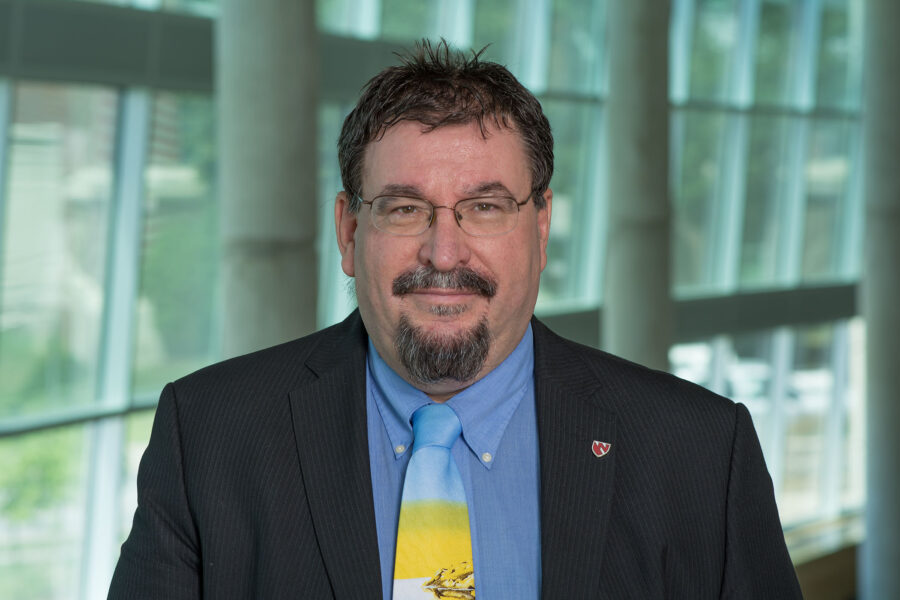Director of the Munroe-Meyer Institute Karoly Mirnics, MD, PhD, accepted a prestigious award on behalf of Special Olympics International on Oct. 27 in New York City.
The organization, which provides year-round sports training, athletic competition, advocacy and health assessment for children and adults with intellectual disabilities, was named the recipient of the 2023 Pardes Humanitarian Prize in Mental Health from the Brain & Behavior Research Foundation.
The foundation’s award recognizes physicians, scientists, public citizens or organizations whose extraordinary contributions have made a profound and lasting impact on advancing the understanding of mental health and providing hope and healing for people who are living with mental illness.
Individuals with intellectual disabilities are considered high risk for various mental health disorders, including ADHD, anxiety, depression and mood disorders, Dr. Mirnics said. Access to timely, quality care can be impeded by inadequately prepared practitioners, lack of adapted assessment tools and limited understanding of intellectual disabilities.
To remedy this, Special Olympics International in 2010 created the Strong Minds program, an emotional well-being assessment and interactive learning activity focused on developing adaptive coping skills in individuals with intellectual disabilities. The program is a great success and was found to be deserving of this prestigious international prize, Dr. Mirnics said.
Dr. Mirnics sits on the board of directors for Special Olympics International and serves as chair of the organization’s global medical advisory committee.
“These things are very strong reinforcers that what we do matters,” Dr. Mirnics said. “It not only matters to our athletes, but it matters to the community. We are not alone and there are other like-minded organizations, and we are changing the world together.”
University of Nebraska Medical Center Chancellor Jeffrey P. Gold, MD, nominated the organization for the award.
In his nomination letter, Dr. Gold cited the positive impact Special Olympics International’s work has on the mental health of its participants.
“In addition to their direct work with individuals with intellectual disabilities, Special Olympics International has also been a leading advocate for the inclusion of people with disabilities in all areas of society,” Dr. Gold wrote. “Their efforts to promote inclusion and reduce stigma have helped to raise awareness about the mental health needs of individuals with intellectual disabilities and have contributed to a more accepting and inclusive society.”
Special Olympics International‘s global presence makes programs and sports activities available to more than 5 million children and adults across more than 200 countries.
